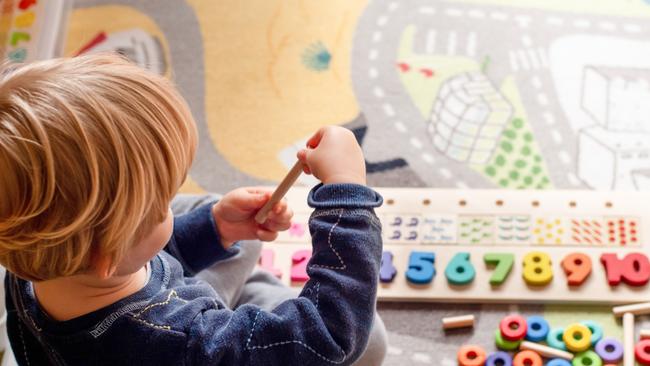Dear Rachel: Ask your parenting questions now
I don’t know how it happened, but my daughter has become addicted to smoking. I feel like I failed her. Parenting expert Rachel Schofield weighs in.

QLD News
Don't miss out on the headlines from QLD News. Followed categories will be added to My News.
A mum is horrified when she discovers her 15-year-old daughter has become addicted to smoking, while another parent struggles with calming her boisterous three-year-old son. Parenting expert Rachel Schofield says it’s important not to blame yourself when your children aren’t behaving as expected.
DEAR RACHEL
My 15-year-old daughter is addicted to smoking, I don’t know how to get through to her how dangerous it is. I don’t know how she got started, I don’t know how she’s getting it – trust me, I’ve tried to figure it out. I’m at my wits end trying to explain to her that it is harmful and addictive, she doesn’t care, and is coughing a lot more than usual. I never smoked so I don’t know why she picked it up and I feel like such an awful parent but I did raise her right. What’s the best way I approach this with her so she understands why she needs to stop?
RACHEL’S RESPONSE
My heart goes out to you. It’s gut-wrenching to watch our kids make choices that could hurt them, especially when it comes to something as serious as smoking. It’s like all our mama-bear instincts go into overdrive! Know that this is not your fault and no reflection of your parenting. So many different factors are at play and you are still an important influence in her life.
Given that you’ve already talked to your daughter about the dangers of smoking, you can rule out lack of information as the reason she’s lighting up. Something else is going on, and we’ll get to that in a bit. But for now, it’s time to switch tacks.
The subject of smoking has become a sensitive one for both. To understand the situation better and help your daughter, we need to dial down the tension and create some breathing room. I know it’s tough, but sometimes the best thing we can do is take a step back.

For the next week or so, instead of focusing on the smoking, focus on warm connection. Find those everyday moments to show her you care. Whip up her favourite meal, offer a foot rub after a long day, or suggest a movie night. Or maybe you hang out nearby and fold laundry or read a book. You’re not demanding her attention, but you’re there, relaxed and available if she reaches out. These small acts of connection build a bridge of trust and remind her that you’re on her team, no matter what.
Use this time to also reflect on your own reactions. How can you stay relaxed and compassionate when you do talk about smoking? Worry and pressure often have the opposite effect of what we intend, pushing our loved ones away rather than drawing them closer. This is especially important now, as she’s navigating the choppy waters of adolescence and figuring out who she is in the world.
When you do decide to talk, approach her with empathy and vulnerability. Instead of lecturing, try this: “Sweetheart, seeing you smoke scares me. I can’t help but picture you struggling to breathe or getting really sick. I know you’re growing up and making your own choices, but this is really hard for me to watch.” You’re sharing your own genuine fear and vulnerability, which allows her to connect with you, not defend herself against you.
And it’s important to take a clear stand: “Smoking isn’t allowed in our home or car. I love you too much to stand by and watch you damage your health.” You might also subtly leave reminders around – a Quitline pamphlet on the coffee table, a printed article about the effects of smoking tucked in her bag. It’s a gentle nudge without the nagging.

Now, let’s talk about what might be going on beneath the surface. Teenage brains are wired for risk; their decision-making centre is still under construction, so impulsive choices are par for the course. Could her smoking be a symptom of something else? Stress, anxiety, peer pressure? Gently explore what’s happening in her world, without judgment. Is there something she needs help with? Is she trying to fit in? Is she getting these cigarettes from someone?
It’s a tough balance, I know. But by managing your own reactivity, respecting her growing independence while maintaining your boundaries, and keeping the connection strong, you’ll create the best possible environment for her to make healthier choices.
And don’t forget to take care of yourself. Lean on your friends and your family – you deserve support too.
DEAR RACHEL
I have a three-year-old and he’s so difficult. He just says no to everything. My husband and I are struggling to get him to do anything. I knew parenting wouldn’t be easy but this just feels so hard. Does it get better and what should we do?
RACHEL’S RESPONSE
I hear you! Three-year-olds can definitely put our patience to the test. It sounds like your little guy is in the throes of the “no” stage, and while it can be incredibly frustrating, it’s actually a very normal (and important!) part of his development. The “no” stage isn’t about defiance; it’s about your son discovering his own voice and will. He’s learning to express himself, test boundaries, and understand his impact on the world. Young children latch onto the word “no” because they know it has an edge to it, they know it has power.
So, how do you navigate this without losing your cool?

Understanding him: When he says “no,” try to understand what’s going on underneath. Is he feeling overwhelmed? Frustrated? Tired? Is he asserting his power and individuality?
Offer respectful choices: Give him a sense of control by offering limited choices. “Do you want to wear the red shirt or the blue shirt?” This helps him feel empowered and reduces the need for power struggles, but choices are no guarantee of co-operation.
Set loving limits: Boundaries, done with warmth and respect, are important. “I understand you don’t want to get in the car, but it’s time to go to daycare now. We can play with your cars again when you get home.” Be clear, and follow through. And here’s the important part: when you hold a limit, your child might get upset. That’s okay! Your job isn’t to fix it or make the upset go away, but to be a calm, loving anchor for him while he rides those waves of emotion.
Connect before you direct: Before you ask him to do something, take a moment to connect. Get down on his level, make eye contact, and engage with him playfully. Talk about what he’s doing, join him in his world for a few minutes. This helps him feel seen and heard, making him more receptive to your requests.
Embrace the “no”: Sometimes, “no” simply means he needs a little more time to process or transition. Instead of reacting, try pausing and observing. He might surprise you by co-operating a few moments later.
Be playful: Turn the saying “no” into a game. Ask him silly questions that he can delight in saying “no” to, “Do you want boiled slugs for breakfast?”, “Do cows say ‘meow’?”, “Do you like broccoli more than cookies?”
Hang in there, this phase will pass. Remember, your son’s “no’s” are a sign of his growing independence and self-awareness. No strategy is going to completely eliminate this behaviour, as it’s a natural part of his development. But by understanding what’s driving his need to say “no,” and using these strategies, you can help him learn to express himself in a more positive way.
And remember to take care of yourself. Parenting a ‘threenager’ can be emotionally exhausting. Lean on your friends and family and don’t be afraid to ask for help. You’ve got this!

Rachel Schofield, a leading parenting expert with 17 years experience, helps families ditch bribes and yelling for calmer, happier homes. With warmth and understanding, she guides parents to raise connected, resilient children using evidence-based strategies. Rachel’s a Professional Member of the Australian Association of Family Therapists and mum of two teenagers. Download her free guide, “How to Stop Losing It With Your Kids” and smooth out those parenting challenges.


